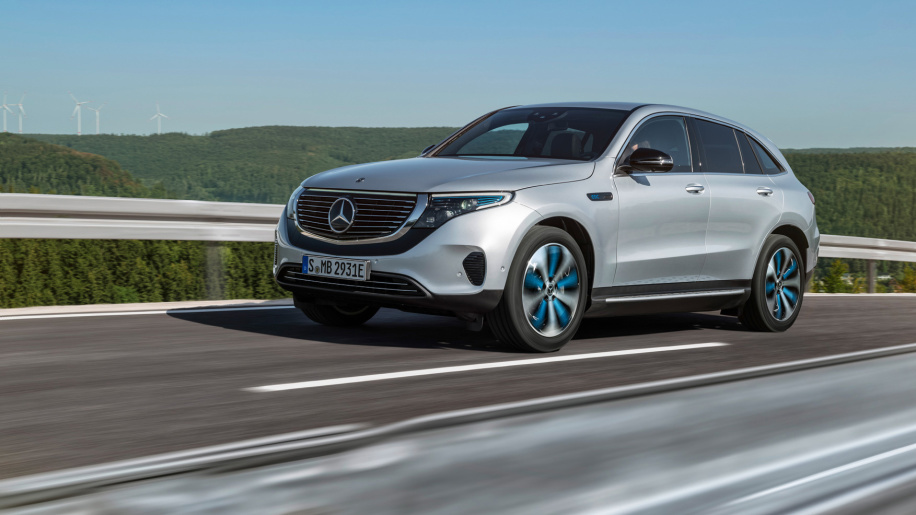
Tesla rival Mercedes-Benz has decided to adopt a gradual rollout for the EQC, the company’s first all-electric vehicle that’s designed to compete with premium SUVs like the Model X. Mercedes-Benz head of production and supply chain management Markus Schaefer related the EQC’s production ramp update last week.
Schaefer noted in a statement to Europe Auto News that the German automaker is opting to play it safe with the EQC’s rollout to make sure that warranty costs for the upcoming vehicle don’t spike. The Mercedes-Benz executive added that his main concern lies in monitoring the EQC’s costly, 80-kWh lithium-ion battery pack.
“We want to be sure we deliver Mercedes quality from day one in all aspects, and we have to watch the warranty side for customers as well. We don’t want customers ending up at the mechanic later. Slowing down the ramp-up is a tool to make sure we do it right, to address all the unknowns that an electric car brings,” Schaefer said.
So far, there have been no problems emerging from the EQC’s battery pack plant in Kamenz, Germany, with all component manufacturers being carefully vetted by the company. That being said, Mercedes-Benz acknowledges that building a new type of vehicle at scale could become more challenging than expected, considering the new technology involved and a series of new suppliers. Thus, for Schaefer, it would be best to prepare for any possible problems with the EQC’s battery.
“This is the heart of the electric vehicle, which is very much in charge of safety and performance of the vehicle as well as long life and costs. There are hundreds of components that have to come together from various new suppliers, Tier 2 and Tier 3, which are in the background, and we have to see their performance,” he said.
While the Mercedes-Benz EQC would see a gradual rollout when it starts production, Schaefer maintains that he is nonetheless optimistic about the company’s capability to quickly ramp the vehicle. The company plans to manufacture the EQC at its factories in Bremen, Germany, and Beijing, China, on the same line as the company’s fossil fuel-powered vehicles like the Mercedes-Benz GLC.

“I’m not worried about the production plants in Bremen and Beijing. I know their capability, and they have proven they can ramp up in lightning speed,” Schaefer said.
The Mercedes-Benz EQC is expected to be among the vehicles that would compete with Tesla in the premium EV market. The SUV was unveiled last week, and during the event, Daimler AG Chief Executive Officer Dieter Zetsche stated that the legacy carmaker would be “going all-in” on the emerging electric car transition. Zetsche also noted that its first all-electric car, the EQC, would “offer the best package” compared to rivals.
The Mercedes-Benz EQC is equipped with two electric motors that produce 402 hp and 564 lb-ft of torque, which allows the EQC to accelerate from a dead stop to 60 mph in 4.9 seconds. The EQC also has a top speed of 112 mph. Mercedes-Benz courted some confusion when it unveiled the EQC, as some of the company’s press materials listed the vehicle’s range from its 80-kWh battery as ~200 miles per charge, but in a later statement to The Verge, Mercedes-Benz has clarified that the vehicle actually has a range of 279 miles per charge.

Top Rated Comments (view all)
Discuss: News
Top rated
Newest

